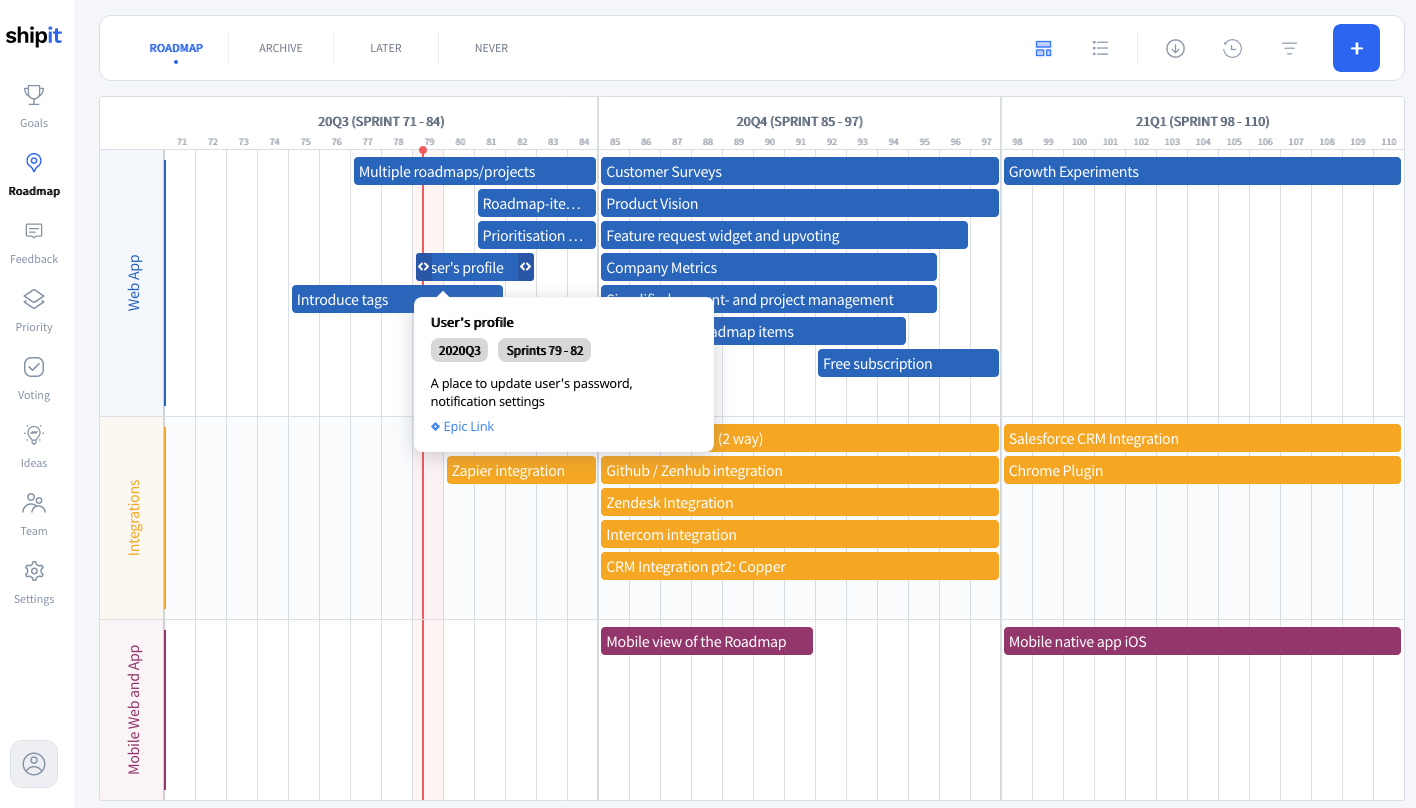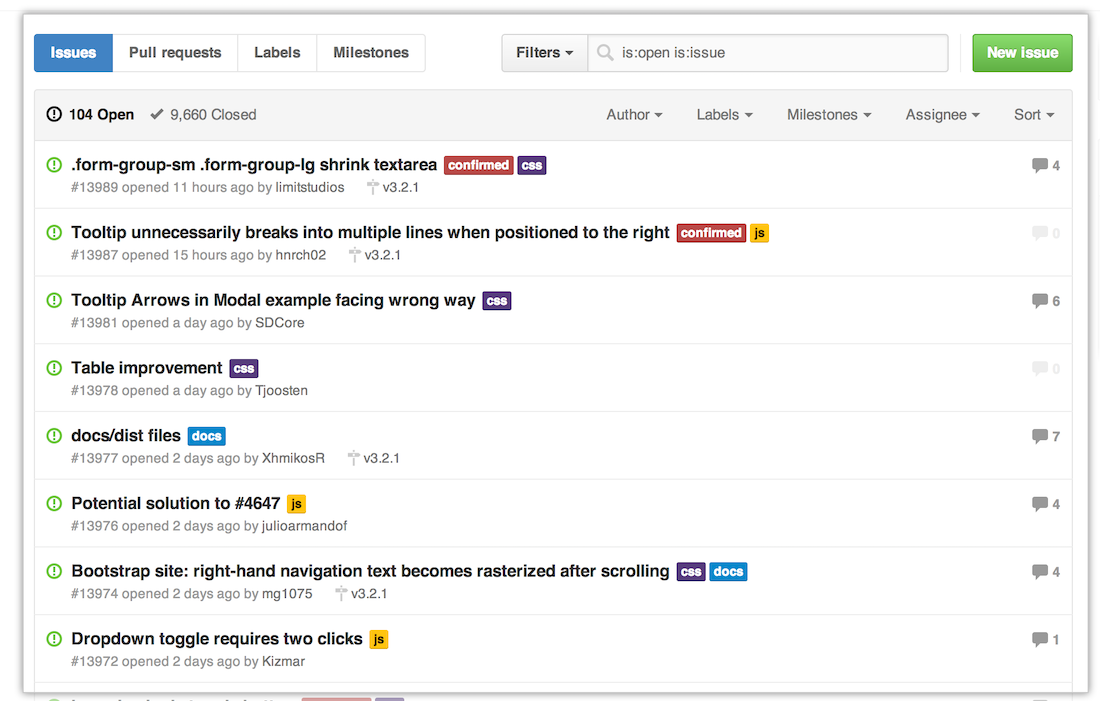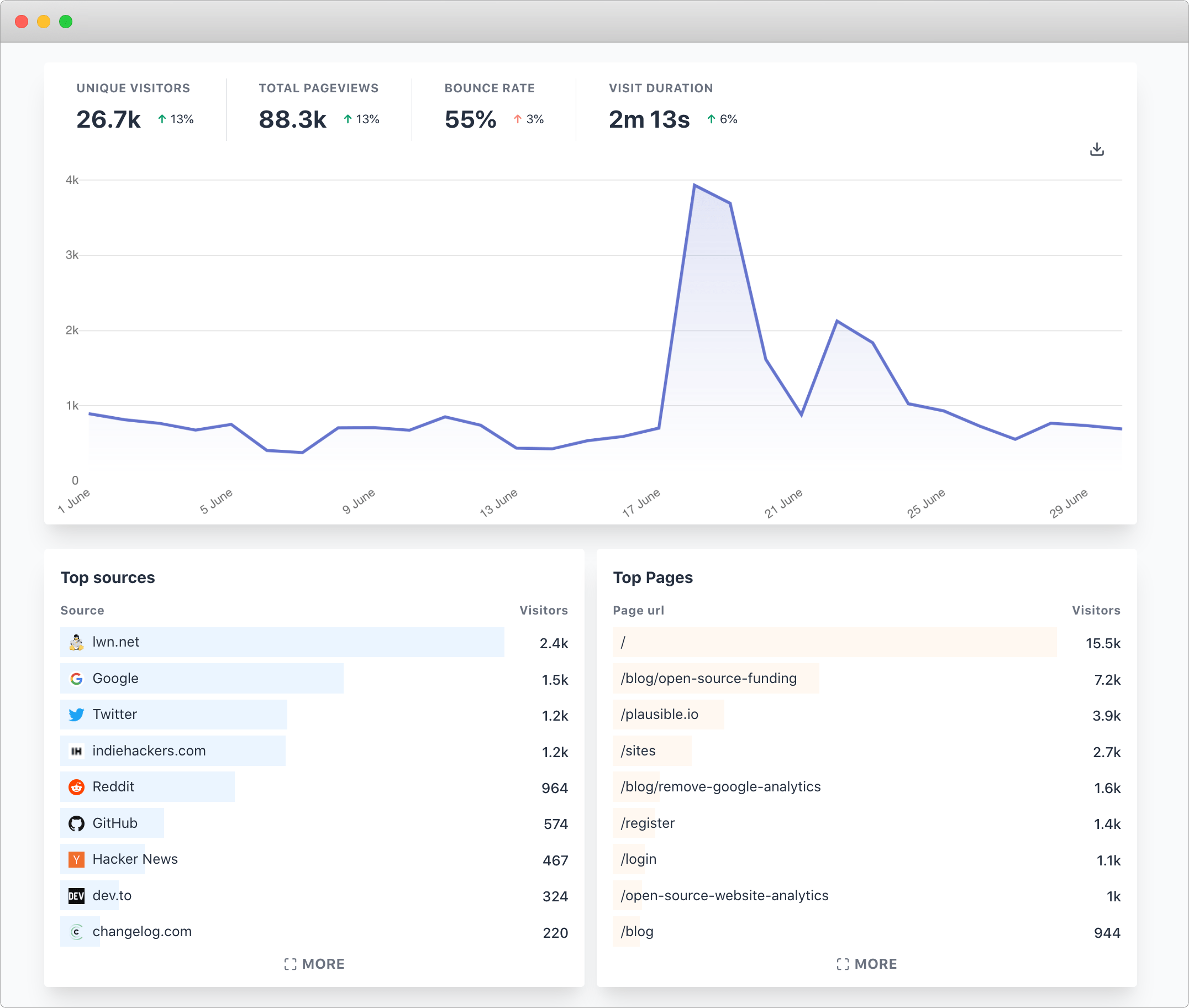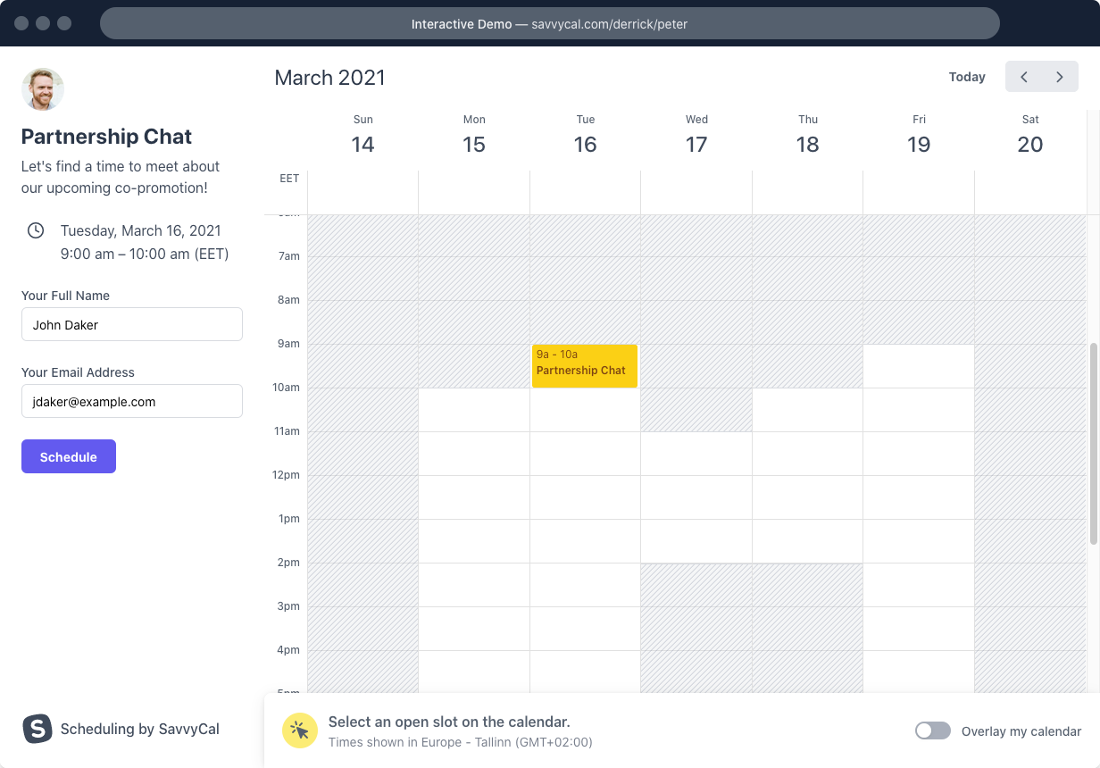
Photo by Slidebean
Just like a developer has a range of tools for every task, product managers have a preference on which tools they use throughout the day. And while we have our own preferences too, we have tried to also highlight some of the alternatives as there’s is no one-size-fits-all type of tool.
Let’s start with what product managers do and need:
- Documentation and knowledge sharing
- Gathering product feedback and ideas
- Product roadmap planning
- Creating product requirements documents
- Managing tasks and releases
- Team communication
- Analytics
- Scheduling
Depending on the size of the team and your requirements, most of the tools are free and available as a cloud version, i.e. you just need a browser to run these.
Documentation and knowledge sharing
Notion

Notion is an all-in-one collaboration tool built in the form of a wiki with a large collection of different templates. Here are just some of the features:
- Team wiki: A great tool for capturing and sharing company knowledge
- Project tasks: Kanban boards, tables, lists, and tasks
- Notes and documents: collect, organize, and share any documentation, customer interviews, and project plans
Some of the templates we like: user research, product documentation, company vision and mission
Price: There is a free personal plan which is enough for indie hackers and small startups.
Alternatives: Evernote, Confluence.
Gathering product feedback and ideas
Google Forms

Google Forms is probably the simplest and easiest way to start gathering product feedback from your users. From linking these in emails, to embedding on the website. Forms and surveys help you learn what users want, why they are happy or unhappy.
Price: Free
Alternatives: Type Form, SurveyMonkey
Product roadmap planning
Shipit

As the authors of shipit, we also use it daily in our job. While roadmap planning is an importat feature, it is not the most essential. Here are the highlights of the tool:
- Simple and intuitive: you do not need to be an experienced product manager to start being effective.
- Roadmap planning: while Gantt chart is the most famous example of the roadmap, a simple bullet list split by quarter is probably the most effective to use daily. You can seamlessly switch between both.
- OKR tracking: Setting up your quarterly goals and connecting to the roadmap initiatives allows you to easily see the impact your roadmap has on company
- Idea management: Gather ideas from users and team members in one place, shape, prioritize, and place them on the roadmap
Price: shipit has three plans starting with €9 for a personal plan with a single user.
Alternatives: ProductBoard, ProdPad, Aha
Product requirements documents
Product requirements documents are an essential part of every product manager. While there are no dedicated tools to creating them, there are lots of places where one can store them. But first let’s start with some templates:
Shipit integrates with Google Drive and Confluence to automatically generate PRD for every item you create on the roadmap. This simplifies the task by doing the boring part of the job.
Managing tasks and releases
Github Issues

Even though Github is mostly a tool for developers, these days everyone uses these for issue tracking, website hosting, blogging, taking notes, wiki, and of course code repository.
Price: there is a free version for small teams
Alternatives: Jira, Trello, YouTrack, Gitlab
Team communication
Twist

Twist is a distraction-free space where teams can balance focused work with collaborative conversations. It is a messenger built from the grounds up for remote asynchronous work. Modern social networks and messengers cause notification fatigue: whenever we see a red notification dot, we rush to read that message which causes us to switch context. Uninterrupted chunks of deep work are essential not only to developers, but also product managers, and actually everyone else too. And this is where Twist shines.
Price: there is a limited free plan for small teams
Alternatives: Slack, Zulip, Jitsi
Analytics
Plausible

Plausible Analytics is a privacy-friendly alternative to Google Analytics. Not only that, but it is also very simple to use and lightweight (<1Kb) on the website. Almost any person who tried to configure GA spent hours watching tutorial videos and reading blog posts on how to do that correctly. And in the end some things would still break.
- Simple interface: It is easy to understand and it cuts through the noise
- Lightweight: Analytics script is very small and keeps your site fast
- No use of cookies: No need for cookie banners or GDPR consent
- Free and open source: Transparent and fully open source software
Pricing: Self-hosted version is free and can be installed on your own premise
Alternatives: Google Analytics, HotJar, Kissmetrics
Scheduling
SavvyCal

Most scheduling tools put the burden on the recipient. SavvyCal makes it easy for both parties to find the best time to meet—in an instant.
- Personalized links: Making personalized links is extremely easy
- Simple time management: Recipients can overlay their calendars on top of yours to find the best slot
- Meeting overload protection: Set limits for how many meetings can be booked per day, week
- Variable duration links: Option for recipients to choose the length of the meeting
Pricing: The basic plan starts at $12/user
Alternatives: Calendly, Google Calendar, FreeBusy